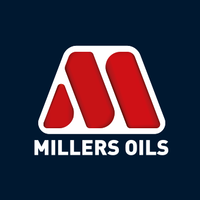Millers Oils dispels the myths: OEMs, specifications, approvals, warranties and the Block Exemption Regulation
Published:
Read Time: 2 mins
When it comes to oils there are two phrases that are often used: “meets specification” and “OEM approved”. Whilst commonly used, Millers Oils – the UK’s leading oil blender – often gets asked what the difference really is and does the difference affect vehicle warranty. Here the company dispels some of these myths offering everyone from factor level to end user a quick refresher on these key terms.
Firstly, what’s an OEM?
OEM stands for Original Equipment Manufacturer, i.e. the company that made your vehicle.
What’s the difference between an oil that’s approved, and an oil that meets specification?
As well as industry standards for oil, such as the European Automobile Manufacturers' Association (ACEA), OEMs often have their own standards or specifications for oil that can be used in their vehicles.
These specifications are made available to oil blenders, who can then formulate products that meet the criteria. If an oil has been formulated in line with the OEM specification, it is described as “meets specification”.
An oil is OEM approved if it has been submitted to the vehicle manufacturer for testing, and they have confirmed that it meets specification.
How do I know if an oil really does “meet specification”?
An industry organisation called the Verification of Lubricant Specification (VLS) monitors the market and checks compliance of products to industry and performance standards. This means businesses and consumers can have confidence in the claims that oil blenders make.
For more information, visit http://ukla-vls.org.uk/
If I use an oil that “meets specification”, will it invalidate my warranty?
The quick answer is ‘no’. An oil that meets specification will not invalidate your warranty.
However, looking at this in more detail it’s worth mentioning in 2003, the European Commission introduced the Block Exemption Regulation, which is a law that stops unfair activities that prevent competition. In the context of oil, it means motorists can have their vehicles serviced or repaired in any chosen workshop without invalidating their manufacturer’s warranty, so long as the work, parts and oil are of appropriate and matching standard to that of the manufacturer.
Simply put, if an oil meets the OEM specification, it is the same standard as the OEM approved oil and will not invalidate your warranty.
Find out more
To find out more about Millers Oils’ extensive offering please visit www.millersoils.co.uk or call 01484 713201. For more technical advice please contact the team direct via technical@millersoils.co.uk
Ends
Editors notes
Comprising a uniquely collaborative network of senior PR professionals based at offices around England, Hornby Whitefoot PR has helped a wide range of companies and brands to communicate their news, build business and reposition their reputations since 2015. From strategy to tactics, project management to copy-writing, Hornby Whitefoot PR offers flexible, proactive public relations expertise, founded on real business and marcomms understanding. And our ‘open book’, annual budget or project-based approach – with no murky retainers to hide behind – means you can trust us to make your money go further. Specialisms include the garden, home and lifestyle sector, and the automotive aftermarket industry.

